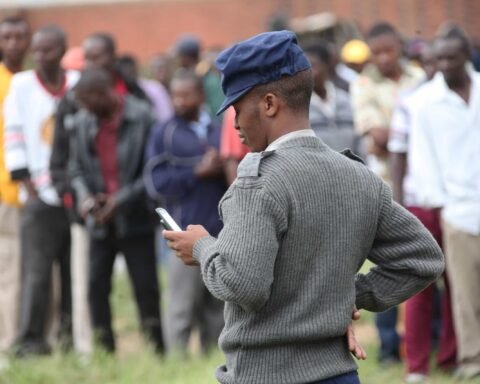Harare- Zimbabwe Medical professionals yesterday said they still had not been trained on how to administer the COVID-19 vaccines despite the country receiving its first batch today of 200 000 doses of the Sinopharm inoculation donated by China.
The government also procured another 600 000 doses of the same vaccine, but the second lot is expected in the country early next month.
The arrival of the vaccine is subject to 48-hour verification by the Medicines Control Authority of Zimbabwe (MCAZ) before distribution, with medical professionals among the first beneficiaries.
But the president of the Zimbabwe Nurses Association (Zina), Enock Dongo said they were never informed nor were they consulted about the vaccines to be brought into the country.
He said nurses still did not know the type of vaccine that would be dispatched to the vaccination centres, adding that they were also not trained on how to administer the jab, or made aware of possible side effects.
“Generally nurses are not aware of it, and none have yet been formally trained to administer it even though there is a specific department to do that,” Dongo said.
“This is wrong because there is a huge information gap. How then are we expected to administer the vaccine to the public, if we are unable to tell them whether there will be any side effects or not?”
Dongo said the government should have consulted stakeholders first, before the rollout exercise, as well as widely inform the nation about the programme.
“We as frontline workers and nurses particularly, are ill-prepared. We have not received training to be able to also pass on the information to our clients. There is need for the government to ensure that the district centres are well capacitated to store the vaccines,” Dongo said.
He said health workers would be forced to take the vaccine simply because there was no other option to keep them safe.
“We tried to get the government to de-congest hospitals for our safety, and also to provide adequate personal protective equipment (PPE) but it did not work. So our hopes were pinned on the vaccine, but we do not know what it is,” Dongo said.








